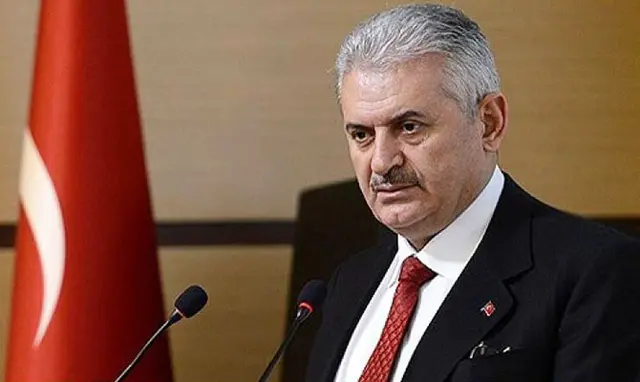Turkey vowed on Monday to "completely cleanse" Islamic State militants from its border region after a suicide bomber suspected of links to the group killed 54 people, including 22 children, at a Kurdish wedding.
Saturday's attack in the southeastern city of Gaziantep is the deadliest in Turkey this year. President Tayyip Erdogan said on Sunday it was carried out by a suicide bomber aged between 12 and 14, adding that initial evidence pointed to Islamic State.
Prime Minister Binali Yildirim said it was too early to verify the organization responsible or whether the attack was carried out by a child.
A senior security official said that the device used was the same type as those employed in the July 2015 suicide attack in the border town of Suruc and the October 2015 suicide bombing of a rally of pro-Kurdish activists in Ankara.
Both of those attacks were blamed on Islamic State. The group has targeted Kurdish gatherings in an apparent effort to further inflame ethnic tensions strained by a long Kurdish insurgency. The Ankara bombing was the deadliest of its kind in Turkey, killing more than 100 people.
"Daesh should be completely cleansed from our borders and we are ready to do what it takes for that," Foreign Minister Mevlut Cavusoglu said at a news conference in Ankara, using an Arabic name for the group.
On Monday, Turkey's military launched howitzer attacks on Islamic State while artillery pounded Kurdish YPG militants in Syria, whom Ankara sees as an extension of its own Kurdish insurgency. An official said the strikes were designed to "open a corridor for moderate rebels".
Turkey's prime minister was more cautious on Monday, saying it was too early to say who carried out the attack, though security sources say witnesses reported the bomber was a child.
Turkish authorities are also investigating whether militants may have placed the explosives on the suspect, without his or her knowledge before detonating them long distance.
That tactic has been used before in Iraq, where children or even mentally disadvantaged adults have been dispatched as unwitting bomb couriers into markets and checkpoints before they are blown up from afar.
Relatives of Kumri Ilter, one of the victims of Saturday's suicide bombing at a wedding, mourn during her funeral ceremony in southeastern city of Gaziantep, Turkey, August 22, 2016.REUTERS/Osman Orsal.
Turkey Target
Cavusoglu said Turkey, a member of NATO and the U.S.-led coalition against Islamic State, had become the "number one target" for the militants because of its work to stop recruits traveling through Turkey across its over 800 km (500 mile) border into Syria to join the Sunni hardline group.
For Ankara, Islamic State is not the only threat across its frontier. Turkey is also concerned that attempts by Syrian Kurds to extend their control along the common border could add momentum to an insurgency by Kurds on its own territory.
Dogan news agency said the death toll in the Gaziantep bombing had risen on Monday to 54 after three more people died. Sixty-six were being treated in hospital, 14 in serious condition.
Turkish authorities have said a destroyed suicide vest was found at the scene of the bombing.
A second security official told Reuters that they were investigating the possibility militants could have placed the explosives on the child without his or her knowledge and detonated them remotely, or that a child with a learning disability was duped into carrying the device, a tactic seen elsewhere in the region.
"It could be that someone was loaded with explosives without even being aware of it and it may have been detonated remotely," the official said, adding a search was underway for suspected militants who may have played a reconnaissance role.
In the latest southeast violence, two Turkish security force members and five PKK militants were killed in clashes and attacks in three areas of eastern Turkey over the last 24 hours, officials said.
Some in Turkey, particularly in the Kurdish southeast, feel the government has not done enough to protect its citizens from Islamic State.
The pro-Kurdish Peoples' Democratic Party (HDP) said the wedding party was for one of its members. The groom was among those injured, but the bride was not hurt.
(APD)
 简体中文
简体中文





